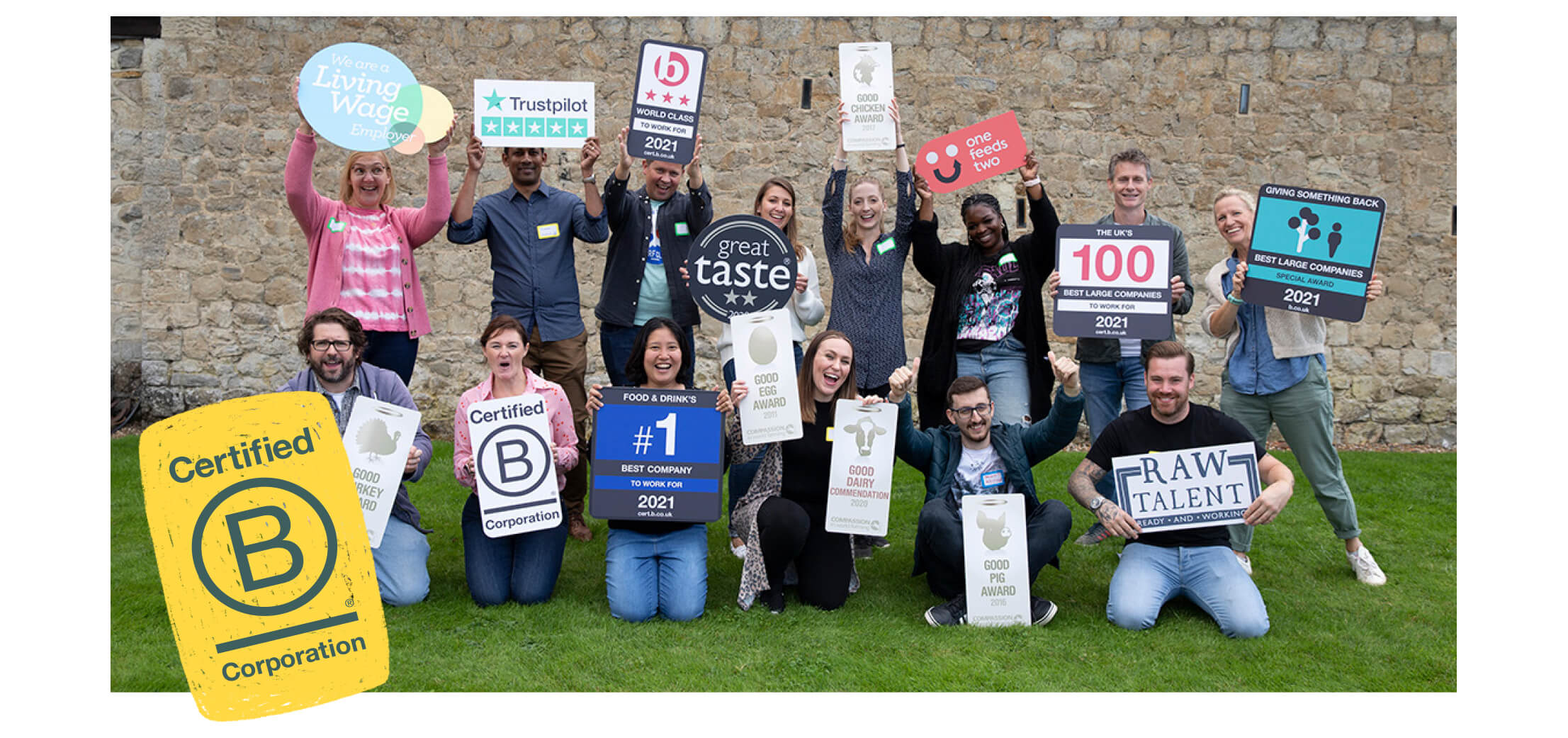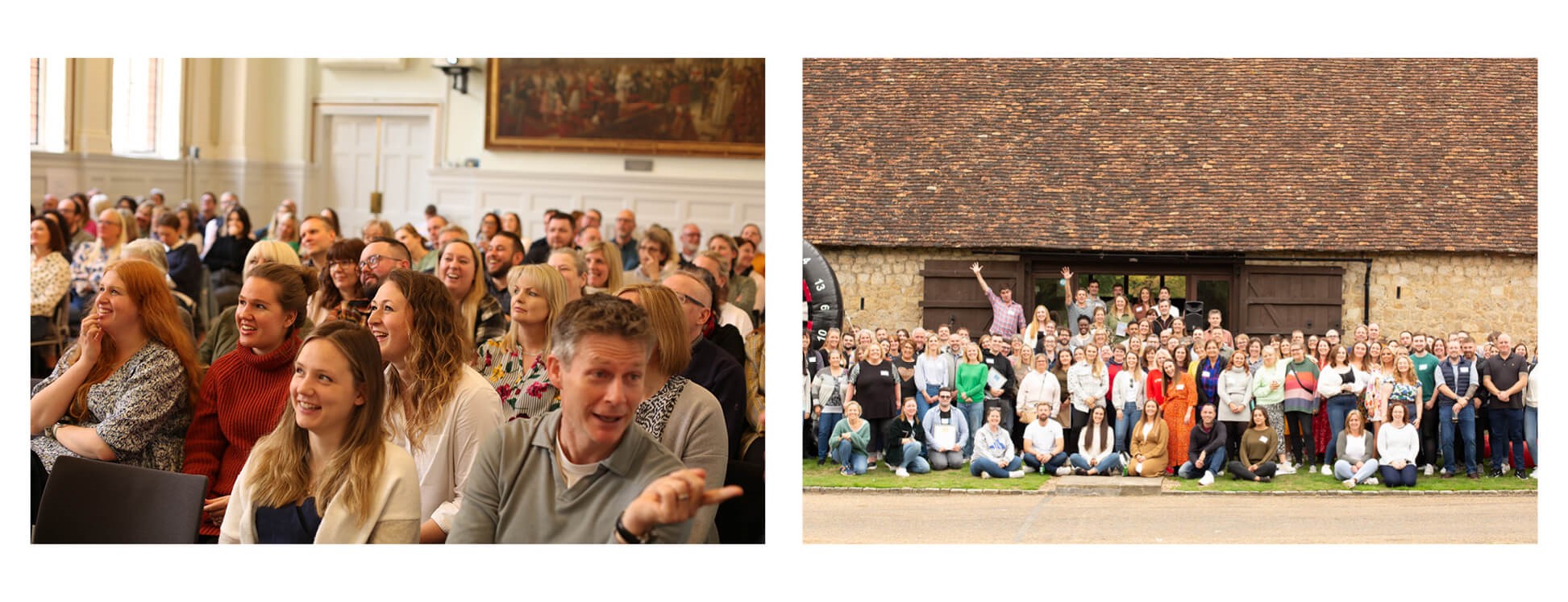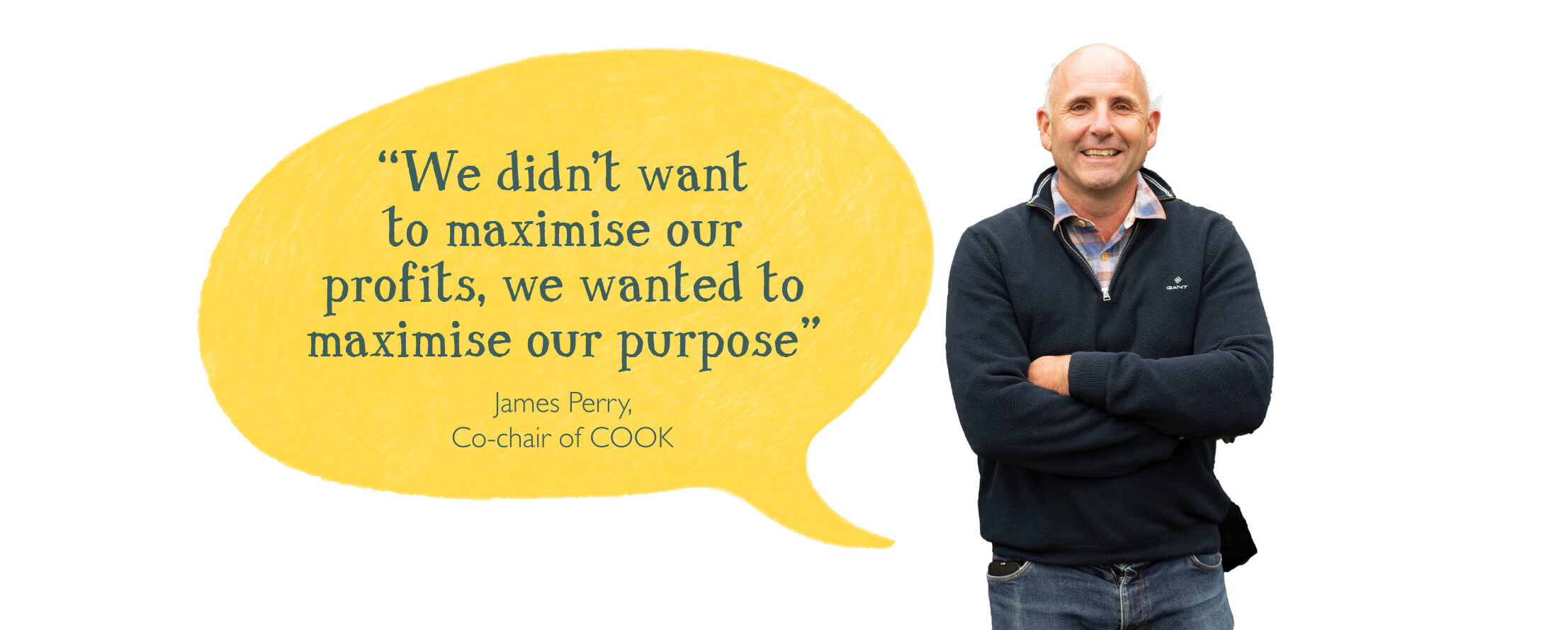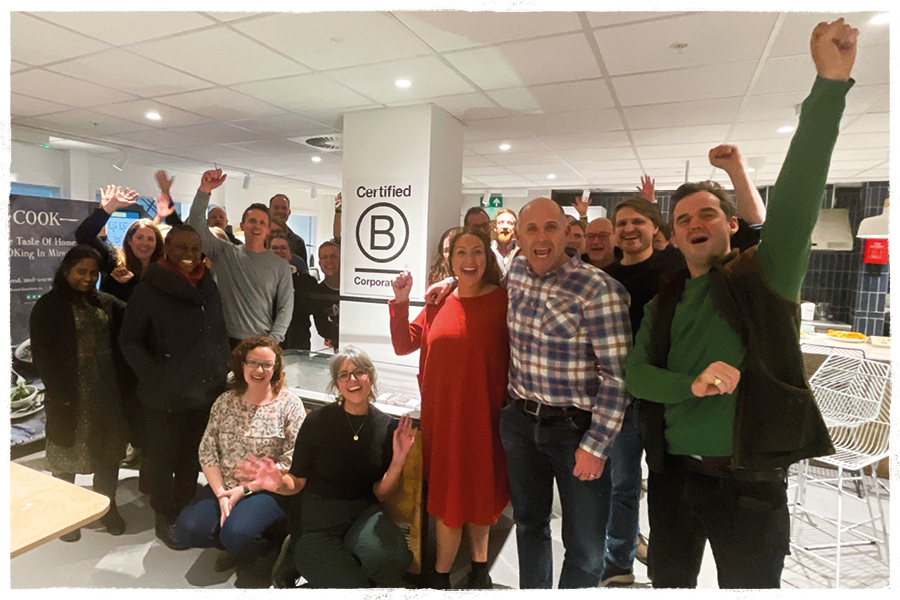
< Back to Main Blog Posted: Mar 2024
The Power of B Corp…and why there’s still a long way to go
By James Perry, co-chair of COOK and former co-chair of B Lab in the UK
Back in 2010, COOK had an identity problem. People thought we were crazy and we didn’t have a way to explain why we weren’t. Then, on a trip to the US, we found the B Corp movement: the biggest idea in micro-economics in generations.
Our identity problem was simple: we knew we were a business; but we didn’t agree with what everybody told us being a business meant. Time and again, banks and prospective investors insisted our only purpose was to maximise financial value for our shareholders. It just wasn’t what we believed.

We knew in our hearts the role of business should be to create maximum value for all our stakeholders. Yes, our shareholders, but also our people; the communities where we operate; and the planet more broadly.
We didn’t want to maximise our profits, we wanted to maximise our purpose. But we had no language to explain this to people. Or none they understood.
Finding the B Corp movement in 2010 was like finding our tribe. More than that, we discovered our identity.

We became one of the first UK certified B Corps at the end of 2013. It remains one of the best things we’ve ever done. It’s enabled us to assert who we are and who we want to become.
Ten years on and B Corps are a thing in the UK. A community of more than 1,500 businesses and counting. It’s been an incredible ride: co-founding the movement here in 2015, and learning from (and becoming friends with) many incredible people and companies seeking to reinvent business to serve everybody, not just shareholders. We’ve learned that not only does it work, it is a better way of being.
Business owners and leaders increasingly realise they have a choice: to be a profit maximiser or to be a purpose maximiser. B Corp remains the best articulation of the latter idea and the best community of people doing it.
But there is a long way to go. Debates rage as to where to draw the line for being a B Corp. Should it be for the best of the best (‘the tip of the spear’ as B Lab co-founder Jay Coen Gilbert used to say)? Or should it include bigger companies (like Danone and Nespresso) because if it doesn’t then it cannot claim to be about all businesses?
Go beyond this debate (both sides of which have a point), and there are deeper challenges. The market rules and complex web of incentives that govern all industries are still geared towards our 20th century idea of ‘prosperity’ – promoting greater output at lower cost.
This is true in our sector, food, and this market architecture give us incredibly cheap and plentiful calories. At the same time it is driving an escalating crisis in our ecosystems and our personal health. Yet the incumbent story of ‘growth’ and ‘prosperity’ grind on, albeit with a few green decorations.
The urgently needed changes to policies and systems are not happening in any concerted or substantial way. Yes, B Corps have emerged to challenge the status quo but it remains deeply entrenched. For all our progress, we are nearer to the bottom of the mountain than the top. The biggest wins lie ahead of us, not behind us.
As for us at COOK, we remain hopeful and we keep climbing. As Margaret Mead said:
“Never doubt that a small group of thoughtful, committed citizens can change the world. Indeed, it is the only thing that ever has.”
Here’s to the thoughtful, committed community of B Corps. And to our shared mission to change the world of business.



















